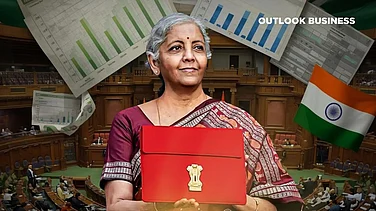Global brokerage firm Morgan Stanley expects Finance Minister Nirmala Sitharaman’s upcoming budget to focus on the government’s road map for ‘Viksit Bharat’ by 2047 and give a medium-term plan for fiscal consolidation.
“With fiscal prudence guiding the overall fiscal policy stance, we expect the focus to remain on capex expenditure over revenue expenditure and targeted social sector spending with a focus on improving access to physical, social, and digital infrastructure,” the firm said.
FM Sitharaman is scheduled to present the full budget for the financial year 2025 on July 23. This will be the first major policy document of the Modi government’s third term.
Morgan Stanley expects the fiscal deficit target to be retained at 5.1 per cent of GDP in FY25, in line with the interim budget as against 5.6 per cent of GDP in FY24, and to be on track to attain the target of 4.5 per cent of GDP by FY26.
“The fiscal headroom has improved with a larger-than-expected transfer of surplus from the RBI, which in our view will help to maintain the momentum on capex expenditure and increase targeted welfare spending. In this context, we see the possibility of a slightly lower fiscal deficit target (tad below 5.1 per cent of GDP) given the support from tax and non-tax revenues,” the brokerage said.
According to the report, the impact of the budget on the market has been on a secular decline, albeit actual performance is a function of pre-budget expectations. As of now, the market seems to be approaching the budget with exuberance and could be dealing with both volatility and a correction post-budget, if history is a guide.
“We think the market could be surprised by the lack of major tax cuts or redistribution spends. We are overweight Financials, Consumer Discretionary, Industrials and Technology, and underweight all other sectors,” the report said.
According to Morgan Stanley analysis, the stock market falls on two of three occasions in the 30 days after the budget. The probability of such a fall rises to 80 per cent if the market has surged in the 30 days preceding the budget. Only twice in 30 years, the Indian stock market surged both pre and post-budget.
This year, India is tracking higher on both an absolute and relative basis, and if it were to hold this performance into the budget day, then there is a strong likelihood that if it corrects post-budget, the analysis said.




























